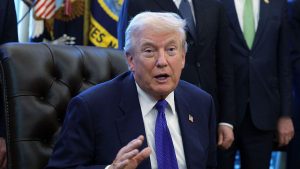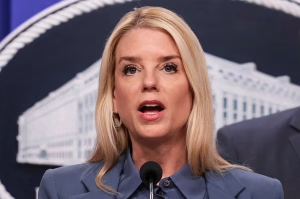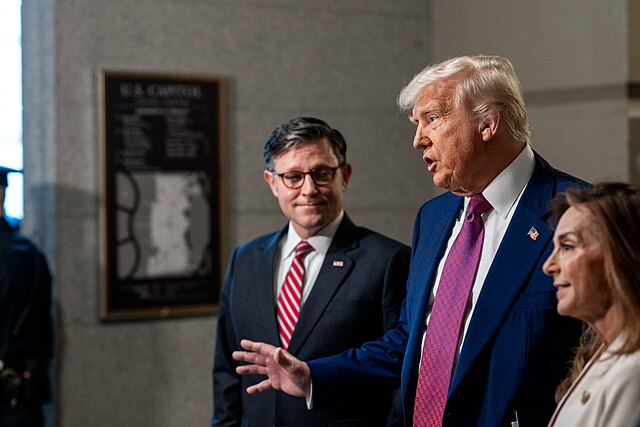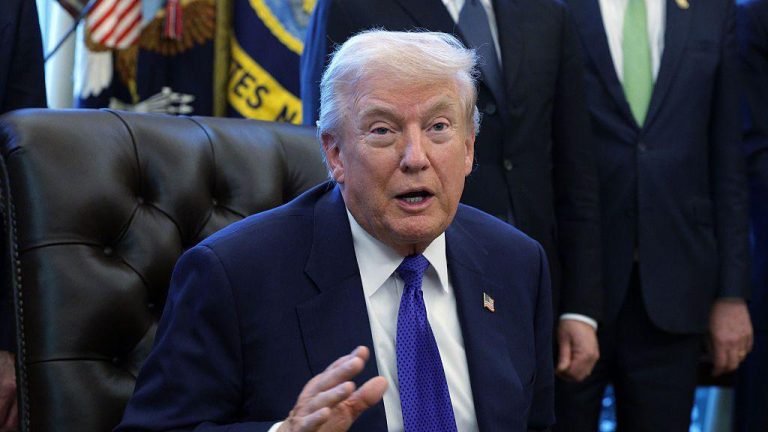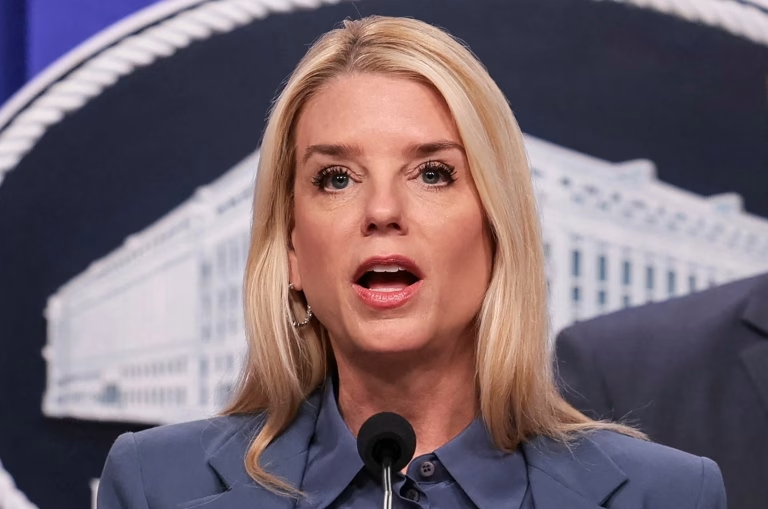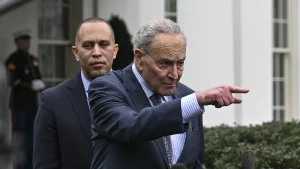A Stalemate Reaches Its Fourth Week
The federal government remains partially shuttered after nearly a month of negotiations between congressional leaders stalled over competing short-term funding bills. As pressure mounts from federal employees and agencies struggling to operate without appropriations, House Speaker Mike Johnson says he believes a resolution could come within days — if both parties are willing to compromise.
Speaking in a Fox Business interview, Johnson criticized Senate Democrats for repeatedly rejecting a Republican-backed continuing resolution (CR) that he described as “clean and simple,” arguing it would have kept essential services running while budget negotiations continued. “We passed a clean continuing resolution — totally nonpartisan, 24 pages, very straightforward,” Johnson said. “It would have kept the lights on so Congress could finish appropriating funds for the annual budget.”
The Senate, however, voted several times against the proposal, citing concerns that the House plan excluded key funding priorities related to health care, public broadcasting, and international programs. Democrats countered with their own short-term measure, which Johnson dismissed as “a trillion-and-a-half-dollar spending increase” that included provisions Republicans found unacceptable.
However, Democrats may be on the verge of folding
Accusations of Political Gamesmanship
In the interview, Johnson expressed frustration with what he characterized as partisan maneuvering, accusing Senate Majority Leader Chuck Schumer and House Democratic Leader Hakeem Jeffries of bowing to pressure from progressive members of their party.
“This is the first time in history that any party has chosen to shut the government down over a clean CR,” Johnson said. “They’re playing a game, and real people are getting hurt.” He suggested that the Democratic leadership’s hesitation was motivated by internal political concerns rather than fiscal responsibility.
According to Johnson, the House proposal would have allowed the government to continue functioning without introducing new spending commitments, while giving lawmakers time to finalize a full-year budget package before year’s end. “Real Americans are hurting, and it’s so frustrating,” he added. “We did our job weeks ago — the Democrats just won’t come to the table.”
Democrats Indicate a Shift in Tone
Despite the continued standoff, there are growing indications that some Democratic senators are eager to find a way forward. Senator Mark Warner of Virginia said over the weekend that he is “hopeful” the shutdown could end as early as this week. Appearing on CBS’s Face the Nation, Warner declined to specify which areas Democrats might be willing to compromise on but emphasized the urgency of restoring government operations.
Asked when the “pain and pressure” of the shutdown might finally force a deal, Warner said simply, “I hope it ends this week.” He pointed to the economic toll and the impact on families, from unpaid federal workers to disruptions in key services like air traffic control and food assistance programs.
Warner also suggested that former President Donald Trump’s return to the country might influence the negotiations. “We knew this wasn’t going to end unless Donald Trump was back in the country,” he said, calling on him to “put America first” by encouraging his allies in Congress to reach an agreement.
The Cost of Prolonged Gridlock
As the shutdown enters its fourth week, federal agencies have begun to curtail or delay a range of services. Reports indicate that some federal employees have missed multiple paychecks, while smaller contractors and local communities are beginning to feel secondary economic effects.
Analysts note that even short-term disruptions can have long-lasting implications for federal infrastructure, workforce morale, and public trust. “Each week of delay makes it harder to recover,” said a former Office of Management and Budget official, who noted that “shutdown fatigue” has become increasingly common in recent years as partisan divisions deepen.
The political costs are also uncertain. Historically, public opinion during shutdowns has tended to shift depending on which party voters perceive as obstructing compromise. For both parties, the stakes remain high as budget deadlines collide with broader debates over federal spending priorities and the national debt.
Behind Closed Doors: What Happens Next
Capitol Hill aides say informal conversations between senior staffers are continuing even as public statements remain sharp. Both sides acknowledge that a temporary funding extension remains the most likely near-term solution, though they differ sharply on what should be included.
Johnson maintains that the House proposal remains on the table and that Republicans are ready to reconvene within 48 hours if Democrats agree to vote on it. “We can be back in session in two days,” he said. “All we need is for them to stop playing games.”
Some Democratic strategists, meanwhile, argue that Johnson’s definition of a “clean” bill omits vital priorities such as health care funding and support for international aid programs. They contend that these measures are necessary to maintain U.S. commitments abroad and safeguard domestic welfare programs.
A Possible Break in the Impasse
While few lawmakers have publicly predicted an immediate breakthrough, there are increasing signs of quiet negotiations behind the scenes. Congressional observers note that both parties have an incentive to reach an agreement before the end of the fiscal quarter, when additional spending decisions must be finalized.
According to several officials familiar with the discussions, a framework is emerging that could extend government funding for several more months while setting parameters for broader budget talks. Such an arrangement would mirror past compromises that temporarily ended shutdowns without resolving deeper disputes over spending levels.
If a short-term resolution is reached, Johnson has said he intends to use the remainder of the year to pursue “serious reforms” to reduce federal spending growth and review funding for specific domestic and foreign programs. “We can get this done,” he told Fox Business. “We just need good faith on both sides.”
Public Pressure Mounts
Outside Washington, the effects of the shutdown continue to ripple across the country. Travelers report longer lines at airports as staffing shortages persist. Nutrition programs and housing assistance funds are tightening, particularly in rural areas. States dependent on federal contracts are urging Congress to act before local budgets are further strained.
Business groups and civic organizations have also begun calling for an end to the stalemate. The U.S. Chamber of Commerce recently issued a statement warning that “continued uncertainty undermines confidence in both markets and governance.” Labor groups have echoed similar concerns, emphasizing the toll on families living paycheck to paycheck.
Public sentiment appears to favor a negotiated end rather than prolonged confrontation. A recent national poll indicated that a majority of respondents believe Congress should “reach a temporary deal first, then debate larger spending issues later.”
A Narrow Window for Resolution
As optimism cautiously builds, attention now turns to whether both chambers can coordinate a vote before the weekend. Johnson’s assurance that the House can reconvene within two days suggests a readiness to act quickly if a bipartisan framework materializes. Senate leaders have not ruled out weekend sessions to expedite passage.
For lawmakers in both parties, the next several days could prove decisive. The outcome will determine not only when government operations resume but also whether a path exists toward broader fiscal cooperation before the year’s end.
The Week Ahead
If a compromise emerges, Congress could vote as early as Thursday to reopen federal agencies under a temporary funding plan. The contours of that agreement remain uncertain, but officials on both sides have hinted that it may include minor concessions designed to allow each party to claim progress.
Until then, Johnson’s message remains consistent: the House is ready to act if the Senate will engage. “We can end this quickly,” he said. “We just need them to stop the political theater and focus on governing.”

Emily Johnson is a critically acclaimed essayist and novelist known for her thought-provoking works centered on feminism, women’s rights, and modern relationships. Born and raised in Portland, Oregon, Emily grew up with a deep love of books, often spending her afternoons at her local library. She went on to study literature and gender studies at UCLA, where she became deeply involved in activism and began publishing essays in campus journals. Her debut essay collection, Voices Unbound, struck a chord with readers nationwide for its fearless exploration of gender dynamics, identity, and the challenges faced by women in contemporary society. Emily later transitioned into fiction, writing novels that balance compelling storytelling with social commentary. Her protagonists are often strong, multidimensional women navigating love, ambition, and the struggles of everyday life, making her a favorite among readers who crave authentic, relatable narratives. Critics praise her ability to merge personal intimacy with universal themes. Off the page, Emily is an advocate for women in publishing, leading workshops that encourage young female writers to embrace their voices. She lives in Seattle with her partner and two rescue cats, where she continues to write, teach, and inspire a new generation of storytellers.
